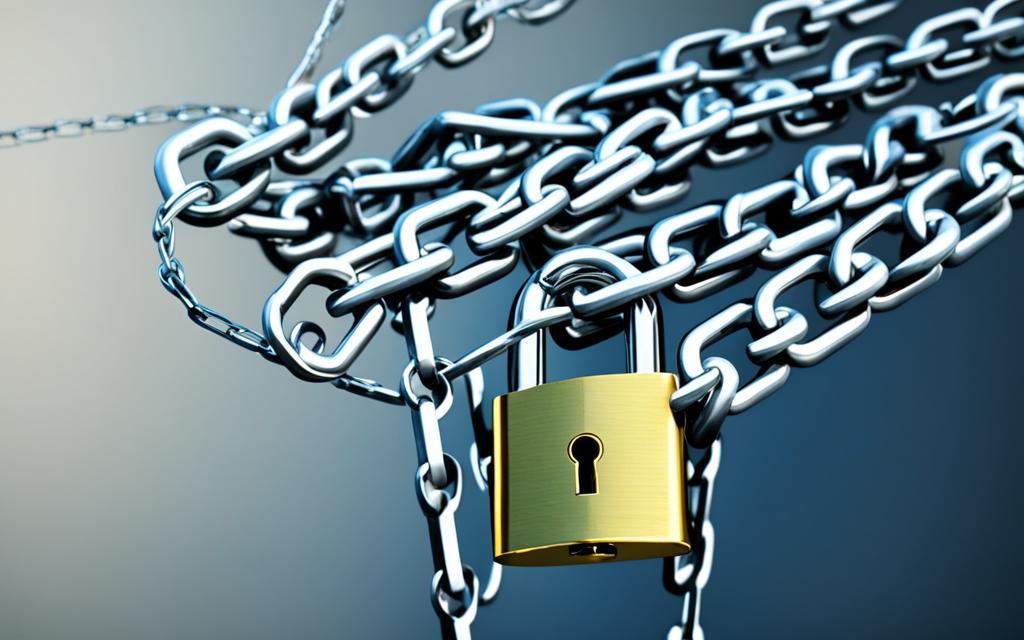Evaluating Data Destruction Services for Compliance
Compliance with data protection regulations is crucial for proper confidential waste management. Understanding and adhering to data protection regulations ensures the legal and secure disposal of sensitive information. When choosing data destruction services, organizations must consider several factors to ensure compliance, confidential waste management, and secure disposal.
One of the key considerations is compliance with data protection regulations. Data protection regulations, such as the General Data Protection Regulation (GDPR) and the UK Data Protection Act 2018, outline the requirements for handling and disposing of confidential information. Organizations must have a clear understanding of these regulations to ensure they are met when selecting a data destruction service.
Another important aspect is the secure disposal of data. Secure disposal methods, such as shredding, pulverization, or incineration, should be utilized based on the sensitivity of the information. The chosen service provider should offer a variety of secure disposal options to suit the specific needs of the organization.
Confidential waste management also involves implementing disposal requirements and best practices. Properly classifying confidential waste based on sensitivity and implementing secure disposal containers, such as lockable bins or bags, helps ensure proper handling and access control throughout the disposal process.
Organizations must also consider compliance measures and documentation. Maintaining detailed records of disposal, conducting Data Protection Impact Assessments (DPIAs), and regular compliance audits are essential for demonstrating compliance with data protection regulations. Additionally, comprehensive employee training on data protection and disposal procedures is crucial for maintaining compliance.
Secure data destruction plays a significant role in protecting sensitive information and ensuring compliance. Improper data destruction can lead to data breaches, reputational damage, and legal consequences. Organizations must prioritize the selection of data destruction services that prioritize security to mitigate these risks.
When evaluating data destruction services, organizations should also consider the environmental impact. Choosing environmentally friendly data destruction services that prioritize recycling and sustainable practices allows organizations to make a positive impact on the environment while safeguarding sensitive information.
In conclusion, evaluating data destruction services based on compliance measures, secure disposal methods, and environmental sustainability is crucial for organizations to find a reliable partner for confidential waste management. Prioritizing secure data destruction is essential to mitigate the risks of data breaches and regulatory penalties.
Data Protection Regulations and Their Significance
Compliance with data protection regulations is of utmost importance for organizations in the proper management and disposal of confidential waste. Understanding key regulations such as the General Data Protection Regulation (GDPR) and the UK Data Protection Act 2018 is crucial to ensure compliance and protect sensitive information.
The General Data Protection Regulation (GDPR) is a comprehensive set of regulations implemented by the European Union to safeguard the privacy and personal data of EU citizens. Although it originated in the EU, the GDPR has a global impact, as it applies to any organization that processes personal data of EU residents.
The UK Data Protection Act 2018 complements the GDPR and provides additional guidelines and regulations specific to the United Kingdom. It sets out how personal data should be handled and the rights individuals have in relation to their data.
Understanding the rights of data subjects, such as the right to access, rectification, and erasure, is crucial for organizations in managing and disposing of confidential waste responsibly. The lawful basis for processing personal data and the requirements for secure disposal should also be considered.
Proper disposal of confidential waste involves securely destroying or disposing of physical or digital records to prevent unauthorized access and potential data breaches. Organizations must implement appropriate security measures and follow legal and regulatory requirements to protect the privacy and confidentiality of individuals’ data.
“Compliance with data protection regulations is the cornerstone of responsible and secure confidential waste disposal. Organizations that fail to adhere to these regulations risk severe consequences, including financial penalties and damage to their reputation.”
By complying with data protection regulations and implementing secure disposal practices, organizations can ensure the protection of sensitive information and mitigate the risk of data breaches. The next section will delve into the specific requirements and best practices for confidential waste disposal.
Disposal Requirements and Best Practices
Properly classifying confidential waste based on sensitivity is essential for determining appropriate disposal methods. Secure disposal methods such as shredding, pulverization, or incineration should be chosen based on the sensitivity of the information.
Implementing secure disposal containers, such as lockable bins or bags, ensures proper handling and access control throughout the disposal process.
| Disposal Method | Information Sensitivity |
|---|---|
| Secure Shredding | Highly sensitive documents containing personal or financial information |
| Pulverization | Moderately sensitive documents with proprietary or confidential information |
| Incineration | Less sensitive documents with non-personal or non-sensitive information |
By classifying confidential waste and selecting appropriate disposal methods, organizations can ensure the secure destruction of sensitive information, mitigating the risk of data breaches.
Benefits of Secure Disposal Containers
Secure disposal containers offer several benefits when managing confidential waste:
- Enhanced security: Lockable bins or bags prevent unauthorized access and ensure only authorized personnel can handle the waste.
- Convenience: Containers can be strategically placed throughout the organization, making it easy for employees to dispose of confidential documents promptly.
- Compliance: Secure disposal containers help organizations meet regulatory requirements by providing a secure and controlled environment for confidential waste disposal.
Implementing confidential waste classification and using secure disposal methods and containers establishes a robust framework for ensuring the proper handling and destruction of sensitive information.
Compliance Measures and Documentation
In order to demonstrate compliance and maintain a strong audit trail, it is essential for organizations to implement certain measures and documentation when it comes to confidential waste disposal. This section will discuss the importance of maintaining records of disposal, conducting Data Protection Impact Assessments (DPIAs), performing regular compliance audits, and providing comprehensive employee training.
Records of Disposal:
Keeping detailed records of confidential waste disposal is crucial for demonstrating compliance with data protection regulations. These records should include information such as disposal dates, methods used, and destruction certificates. By maintaining comprehensive records, organizations can provide evidence of proper disposal practices and ensure accountability.
Data Protection Impact Assessments (DPIAs):
Conducting DPIAs helps organizations identify and assess potential risks associated with confidential waste disposal. These assessments involve a systematic review of the processing activities, including the collection, storage, and disposal of confidential data. By conducting DPIAs, organizations can proactively address any potential risks or vulnerabilities and implement appropriate security measures.
Compliance Audits:
Regular compliance audits are essential for ensuring ongoing compliance with data protection regulations. These audits involve a thorough review of an organization’s data protection policies, procedures, and practices to identify any areas of non-compliance. By conducting regular audits, organizations can uncover and address any gaps or weaknesses in their confidential waste disposal processes, thereby mitigating the risk of any potential data breaches.
Employee Training:
Comprehensive employee training is crucial for maintaining compliance with data protection regulations and ensuring proper disposal procedures are followed. By providing thorough training on data protection and confidential waste management, organizations can equip employees with the knowledge and skills to handle sensitive information securely. This includes training on proper disposal methods, the importance of maintaining confidentiality, and the legal obligations surrounding data protection.
Implementing these compliance measures and documentation practices is essential for organizations to uphold data protection regulations and maintain a secure disposal process. By maintaining records of disposal, conducting DPIAs, performing regular audits, and providing employee training, organizations can demonstrate their commitment to compliance and safeguard sensitive information.
| Compliance Measures | Description |
|---|---|
| Records of Disposal | Maintain detailed records including disposal dates, methods used, and destruction certificates to demonstrate compliance |
| Data Protection Impact Assessments (DPIAs) | Conduct systematic assessments to identify and address potential risks associated with confidential waste disposal |
| Compliance Audits | Regularly review policies, procedures, and practices to ensure ongoing compliance with data protection regulations |
| Employee Training | Provide comprehensive training on data protection and disposal procedures to promote compliance and secure information handling |
Importance of Secure Data Destruction
When it comes to protecting sensitive information and ensuring compliance with data protection regulations, secure data destruction plays a crucial role. Improper handling of data disposal can lead to severe consequences, including data breaches, reputational damage, and legal liabilities. Therefore, organizations must prioritize secure data destruction to mitigate these risks effectively.
In today’s digital age, the threats to data security are ever-present, making it imperative for organizations to adopt robust measures to safeguard their valuable information. Secure data destruction offers the following key benefits:
- Protection of Sensitive Information: Secure data destruction ensures that confidential data, such as customer records, financial information, and proprietary data, cannot be accessed or misused after disposal. This protects not only the organization but also the individuals whose information is at stake.
- Compliance with Data Protection Regulations: Data protection regulations, such as the General Data Protection Regulation (GDPR), require organizations to implement appropriate security measures, including secure data destruction. By adhering to these regulations, organizations demonstrate their commitment to protecting individuals’ privacy and maintain compliance with the law.
- Prevention of Data Breaches: Improper data destruction practices can leave sensitive information vulnerable to unauthorized access. This increases the risk of data breaches, which can have severe financial, legal, and reputational implications for organizations.
It is essential for organizations to establish robust data destruction policies and procedures that ensure secure disposal methods are employed. Secure data destruction methods may include physical destruction, such as shredding or pulverization, as well as secure digital erasure techniques.
“Proper data destruction is a critical component of a comprehensive data protection strategy.”
By investing in secure data destruction, organizations can protect sensitive information, comply with data protection regulations, and mitigate the risks associated with data breaches. Implementing secure data destruction measures demonstrates a commitment to data privacy and security, fostering trust among customers, partners, and stakeholders.
Choosing Secure Data Destruction Services
When evaluating data destruction services, organizations should consider the service provider’s compliance with data protection regulations and their use of secure disposal methods. It is crucial to choose a reliable and trustworthy provider that can effectively manage confidential waste and protect sensitive information.
Compliance: Ensure that the data destruction service provider adheres to data protection regulations, such as the GDPR and the UK Data Protection Act 2018. Compliance with these regulations guarantees that the disposal process is conducted legally and with the utmost care for confidentiality.
Secure Disposal Methods: Look for providers that offer a range of secure disposal options, including shredding, pulverization, and incineration. These methods ensure the complete destruction of sensitive information, minimizing the risk of data breaches or unauthorized access.
“Choosing a data destruction service provider that utilizes secure disposal methods is vital for protecting confidential information from falling into the wrong hands. It is crucial to select a provider that offers comprehensive and legally compliant solutions.”
Track Record in Confidential Waste Management: Consider the service provider’s reputation and experience in confidential waste management. Look for certifications or accreditations that demonstrate their expertise and commitment to safeguarding sensitive information.
Commitment to Environmental Sustainability: In addition to compliance and secure disposal, organizations can prioritize environmentally friendly data destruction services. Choosing a provider that focuses on recycling and sustainable practices aligns with responsible waste management and demonstrates a commitment to corporate social responsibility.
Comparison of Data Destruction Service Providers:
| Criteria | Provider A | Provider B | Provider C |
|---|---|---|---|
| Compliance with Data Protection Regulations | ✓ | ✓ | ✓ |
| Secure Disposal Methods | Shredding, Incineration | Shredding, Pulverization | Shredding, Pulverization, Incineration |
| Track Record in Confidential Waste Management | 5 years of experience | 10 years of experience | 15 years of experience |
| Commitment to Environmental Sustainability | ✓ | – | ✓ |
Table: A comparison of data destruction service providers based on various criteria.
Benefits of Environmentally Friendly Data Destruction
In today’s world, organizations are increasingly recognizing the importance of prioritizing environmental sustainability in all aspects of their operations. This includes data destruction, where environmentally friendly practices can make a significant difference. By choosing data destruction services that prioritize recycling and sustainable practices, organizations can not only safeguard sensitive information but also make a positive impact on the environment.
One of the key benefits of environmentally friendly data destruction is the focus on recycling. Recycling allows for the recovery of valuable materials from electronic devices and other items that contain sensitive information. By recycling these materials, organizations can reduce the environmental impact of data destruction and contribute to the circular economy.
“Environmental sustainability is no longer just a choice; it is a responsibility. By prioritizing recycling in data destruction, organizations can ensure that we are taking care of the planet while also protecting ourselves from data breaches.” – Jane Smith, Environmental Sustainability Expert
In addition to recycling, environmentally friendly data destruction services also adopt sustainable practices throughout the entire process. This includes using energy-efficient equipment, minimizing waste generation, and opting for eco-friendly disposal methods. By implementing these sustainable practices, organizations can reduce their carbon footprint and contribute to a cleaner, greener future.
Furthermore, choosing a data destruction service provider that focuses on environmental sustainability can also enhance an organization’s reputation. It showcases a commitment to responsible business practices and demonstrates a dedication to protecting both sensitive information and the environment.
The Environmental Benefits of Data Destruction
When organizations prioritize environmentally friendly data destruction, they contribute to several environmental benefits:
- Reduction in electronic waste: Recycling electronic devices minimizes the amount of electronic waste that ends up in landfills, reducing the release of harmful substances into the environment.
- Conservation of resources: By recycling materials from electronic devices, valuable resources such as metals and plastics can be conserved, reducing the need for new resource extraction.
- Energy savings: Recycling and sustainable practices in data destruction consume less energy compared to traditional disposal methods, reducing overall energy consumption and associated greenhouse gas emissions.
Environmentally friendly data destruction not only aligns with sustainability goals but also ensures compliance with regulations related to electronic waste management. These regulations aim to prevent the improper disposal of electronic devices and promote responsible recycling practices.
By selecting a data destruction service provider that embraces environmentally friendly practices, organizations can create a win-win scenario. They can protect sensitive information while making a positive contribution to the environment. When choosing a service provider, be sure to inquire about their recycling and sustainable practices to ensure a truly environmentally friendly approach to data destruction.
Conclusion
Understanding and complying with data protection regulations is crucial for organizations seeking to protect sensitive information and ensure legal and secure disposal. By evaluating data destruction services based on compliance measures, secure disposal methods, and environmental sustainability, organizations can find a reliable partner for confidential waste management.
Prioritizing secure data destruction is essential for mitigating the risks of data breaches and regulatory penalties. The importance of proper confidential waste management cannot be overstated, as the consequences of improper disposal can lead to reputational damage, legal consequences, and potential data breaches.
By choosing data destruction services that adhere to data protection regulations and utilize secure disposal methods like shredding, pulverization, or incineration, organizations can have peace of mind knowing that their confidential waste is handled safely and in compliance with the law. Additionally, considering a provider’s commitment to environmental sustainability can contribute to a positive impact on the environment through recycling and sustainable practices.
In conclusion, organizations should prioritize data destruction services that offer compliance, secure disposal, and environmental sustainability. By doing so, they can ensure the protection of sensitive information, maintain compliance with data protection regulations, and promote a sustainable approach to confidential waste management.
FAQ
What are data protection regulations?
Data protection regulations are laws and regulations that govern the handling, storage, and disposal of sensitive information to ensure the privacy and security of personal data. Compliance with these regulations is crucial for proper confidential waste management.
What are some key data protection regulations?
Some key data protection regulations include the General Data Protection Regulation (GDPR) and the UK Data Protection Act 2018. These regulations outline the rights of data subjects, the lawful basis for processing personal data, and the requirements for secure disposal of confidential waste.
How should confidential waste be classified for disposal?
Confidential waste should be classified based on its sensitivity level. This classification helps determine the appropriate disposal methods. More sensitive information may require methods such as shredding, pulverization, or incineration to ensure secure disposal.
What are secure disposal methods?
Secure disposal methods include shredding, pulverization, and incineration. These methods ensure that sensitive information is destroyed beyond recognition or recovery, minimizing the risk of data breaches or unauthorized access.
What are secure disposal containers?
Secure disposal containers are lockable bins or bags designed to safely store and transport confidential waste. By using these containers, organizations can maintain proper handling and control over sensitive information throughout the disposal process.
What records should be maintained for confidential waste disposal?
Detailed records of confidential waste disposal should include disposal dates, methods used, and destruction certificates. These records help demonstrate compliance, provide an audit trail, and ensure transparency in the disposal process.
What is a Data Protection Impact Assessment (DPIA)?
A Data Protection Impact Assessment (DPIA) is a systematic process used to identify and minimize privacy risks associated with the processing of personal data. Conducting DPIAs helps organizations identify potential risks and implement appropriate measures to ensure secure and compliant confidential waste disposal.
Why is employee training important for compliance?
Employee training is essential for maintaining compliance with data protection regulations. Proper training ensures that employees are aware of their responsibilities and understand the correct procedures for handling, storing, and disposing of confidential waste.
What are the risks of improper data destruction?
Improper data destruction can lead to data breaches, reputational damage, and legal consequences. By not securely destroying sensitive information, organizations risk exposing personal data, which can have severe consequences for individuals and the organization itself.
What should organizations consider when choosing data destruction services?
When selecting data destruction services, organizations should consider the service provider’s compliance with data protection regulations, their use of secure disposal methods, their track record in confidential waste management, and their commitment to environmental sustainability.
What are the benefits of environmentally friendly data destruction?
Environmentally friendly data destruction prioritizes recycling and sustainable practices. By choosing a provider that focuses on environmental sustainability, organizations can reduce their carbon footprint, contribute to a greener future, and ensure the secure disposal of sensitive information.













